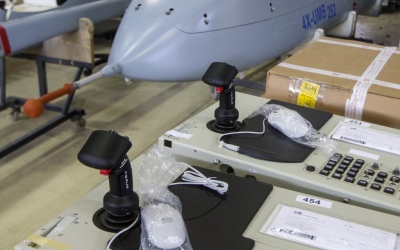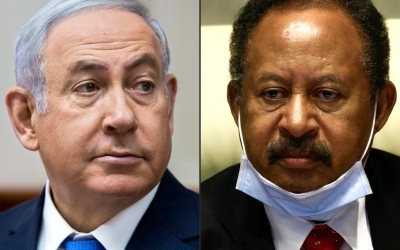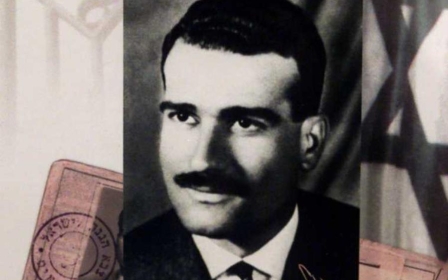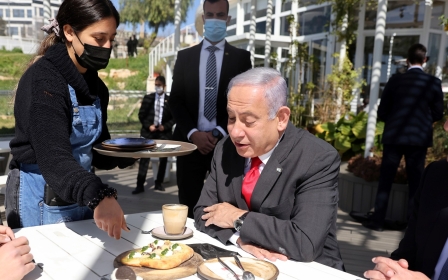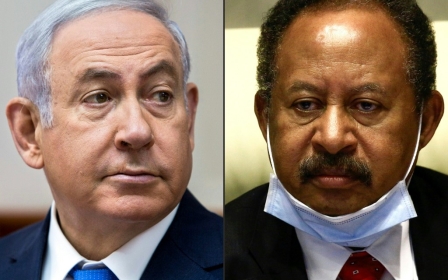Israel's Netanyahu 'cancels trip to UAE' amid dispute with Jordan
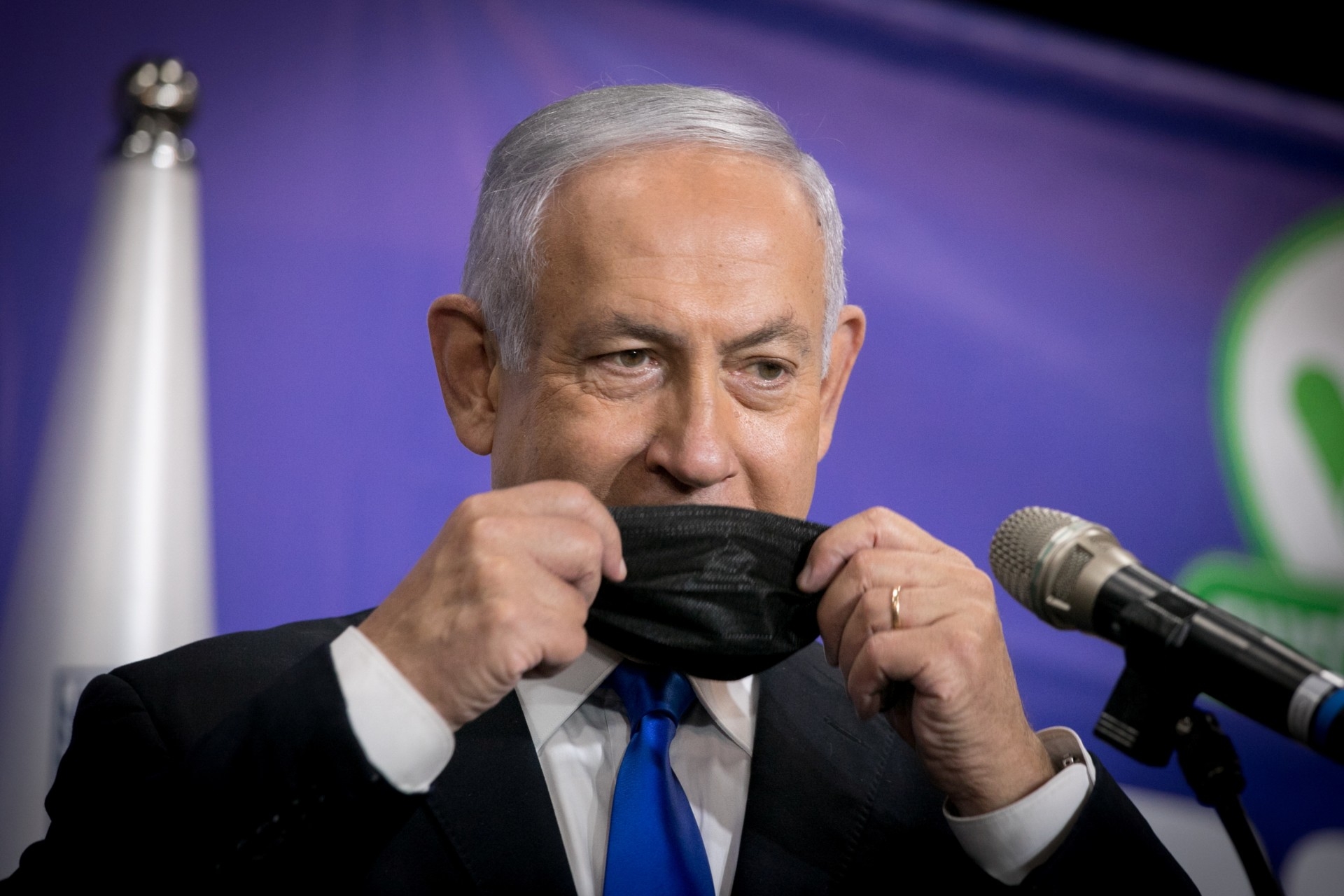
Israeli Prime Minister Benjamin Netanyahu has cancelled his Thursday trip to Abu Dhabi, citing a disagreement with Jordan over crossing its airspace.
The prime minister's office, in a statement on Thursday, said the dispute with Amman stemmed from Israel's decision to cancel the Jordanian crown prince's plans to visit the Al-Aqsa mosque in Jerusalem on Wednesday.
New MEE newsletter: Jerusalem Dispatch
Sign up to get the latest insights and analysis on Israel-Palestine, alongside Turkey Unpacked and other MEE newsletters
The prince's visit was called off following "a dispute over security and safety arrangements at the site", the Israeli statement said.
It is thought Jordan subsequently objected to Netanyahu flying over its territory en route to the UAE.
Jordan later cleared Netanyahu's plane for travel, his office said, but the trip had already been postponed until further notice.
During a news conference in Paris on Thursday, Jordanian Foreign Minister Ayman Safadi confirmed Israel had caused a diplomatic dispute with the cancellation of the Al-Aqsa visit, but he did not comment on the airspace issue.
Netanyahu’s trip to Abu Dhabi would have been the first public visit to the United Arab Emirates by an Israeli leader, and was planned to take place just 11 days before Israelis vote in a general election.
Bibi and MBZ to 'meet very soon'
The prime minister would have met Abu Dhabi Crown Prince Mohammed bin Zayed, and reportedly even Saudi Crown Prince Mohammed bin Salman, a landmark event following Israel’s September normalisation agreement with the UAE.
Netanyahu is believed to have met Mohammed bin Zayed and Mohammed bin Salman previously, however, in clandestine summits that have brought Israel and Gulf Arab states close in recent years.
Later on Thursday, Netanyahu said he had spoken to bin Zayed, also known as MBZ, about rescheduling the trip.
"We agreed that we would meet very soon... and that the UAE would invest $10 billion in investments in Israel," Netanyahu said.
Before the prime minister's public statement, local media had speculated that the visit may have been cancelled because Sarah Netanyahu, the prime minister's wife, was reportedly hospitalised overnight Wednesday with appendicitis.
News of the cancelled trip was first reported on Thursday morning, as a source involved in the UAE trip's planning told Kan, Israel's national broadcaster, about the scrapped visit.
At the time, neither Israel nor the UAE had formally acknowledged that Netanyahu was set to visit Abu Dhabi.
While Saudi sources on Wednesday told Reuters no plans had been made for Mohammed bin Salman to attend the meeting, an Emirati source told the Jerusalem Post "MBS is ready to meet Bibi", using common nicknames for the Saudi and Israeli leaders.
Coming so soon before the election, Thursday's visit would have highlighted the historic normalisation agreements Israel reached with several Arab countries, with the UAE and Bahrain agreeing in September to establish relations, and Sudan and Morocco following.
Though the prime minister's right-wing Likud party is set to win the largest number of seats of any party in the elections, he and his allies still look short of enough of a majority to unilaterally form a government.
According to Axios, Netanyahu spoke on the phone with Mohammed bin Zayed 10 days ago, urging the UAE's de facto leader to receive him. The Emiratis were reportedly hesitant, however, worried it would be perceived as the UAE interfering with the election.
But Netanyahu pressed hard, Axios reported, sending Mossad chief Yossi Cohen to the UAE to press the Emiratis until they agreed.
Middle East Eye delivers independent and unrivalled coverage and analysis of the Middle East, North Africa and beyond. To learn more about republishing this content and the associated fees, please fill out this form. More about MEE can be found here.


